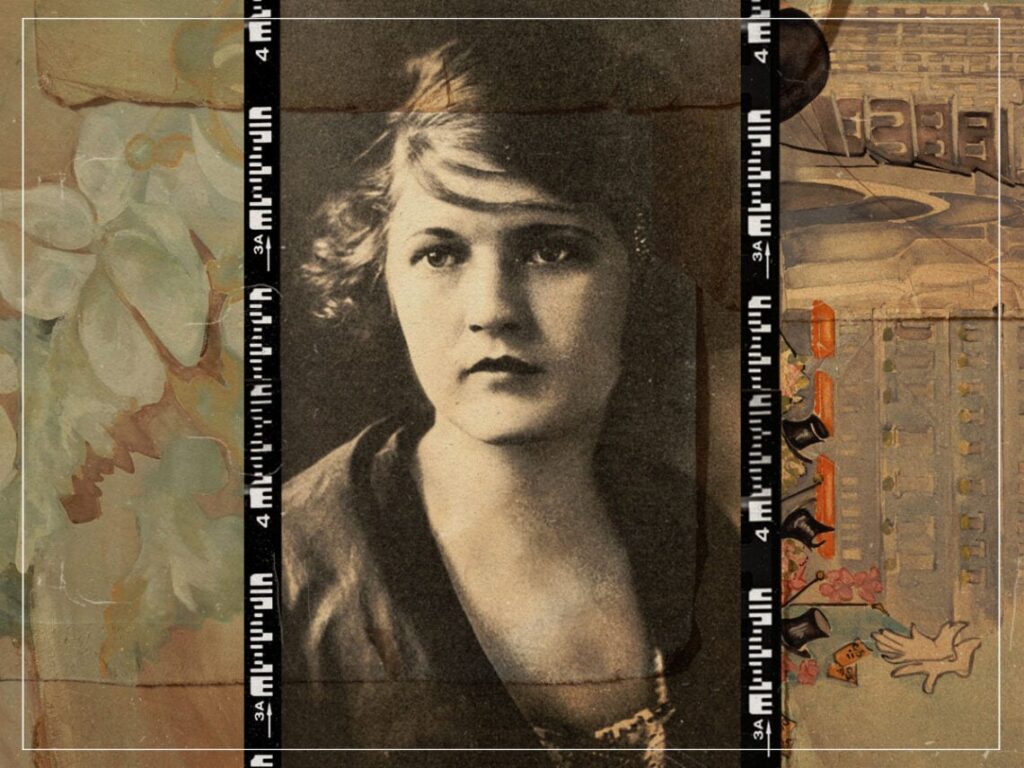Zelda Fitzgerald on the importance of materialism in womanhood
 Posted On
Posted On
(Credits: Far Out / Wikimedia / Zelda Fitzgerald)
Being overshadowed by your husband isn’t unknown in the realm of American art and literary history, but Zelda Fitzgerald was much more than just a muse. Although she reaped the rewards of a life born to privilege and had a beauty and charm that rivalled even the warm glow of a setting sun, celebrating womanhood was a fast track to being branded outlandish.
In the 1920s, Zelda’s marriage to F. Scott Fitzgerald catapulted the pair into the public eye. Due to her excessive partying, Zelda quickly earned a reputation as a flapper. To be a flapper was largely frowned upon, especially by the older generations, who regarded the entire subculture as made up of women who weren’t very intelligent or aspirational.
Due to their abhorrent antics, Zelda and her husband were referred to as “enfants terribles”, whose behaviours caused major disruption during the Jazz Age. While this was likely a lost-in-paradise experience throughout the ’20s, Zelda’s mental health quickly deteriorated in the 1930s, and she continuously exchanged letters with her husband while he travelled around Hollywood without her.
During these times, they told each other about the details of their cultured lives, sharing newfound curiosities and channelling obsessions even if the other didn’t share the same sentiment. While F. Scott Fitzgerald enjoyed writing and gin, Zelda was a lover of aesthetics and perfumes, whose letters would gush over her partner’s thoughtfulness when sending her new aromas to try.
“[It was] so sensorily gratifying a perfume that I wanted more of it,” Zelda wrote when she once received a bottle of Salut to try. In fact, throughout her works, the power of smell arrives as a powerful indicator of class and affluence, where her characters commodify their social status by connecting it to the perfume they are wearing. Of course, this has an overtly sensory impact, but the connotations yielded by such luxurious descriptions outweigh the less obvious associations with the actual fragrance itself.
Fetishising commodities wasn’t always something Zelda achieved through her writing. She saw assets as an indicator of soulful fullness, even regarding them as a natural source of joy and happiness. “Having things, objects make a woman happy,” she once said. “The right kind of perfume, the smart pair of shoes. They are great comforts to the feminine soul.”
Romanticising such fixations is easy when looking at it through a distant lens. The ’20s are far enough in the past that we can apply whatever idealist and sentimentalist views we want. Zelda’s life may have seemed to depict the quintessential young American experience, whose wealthy Alabama upbringing and flirtatious personality could gain her anything she wanted, whether that was materialistic items or romantic partners.
However, she also experienced severe depression and long-term obsessions, which became fixations even her family couldn’t draw her away from. There’s no doubt about Zelda—and her husband—being icons of the ’20s Jazz Age, but even her writing and paintings couldn’t gain the traction they deserved, especially not as a woman in a time when women’s contributions were often undervalued and overlooked.
[embedded content]


